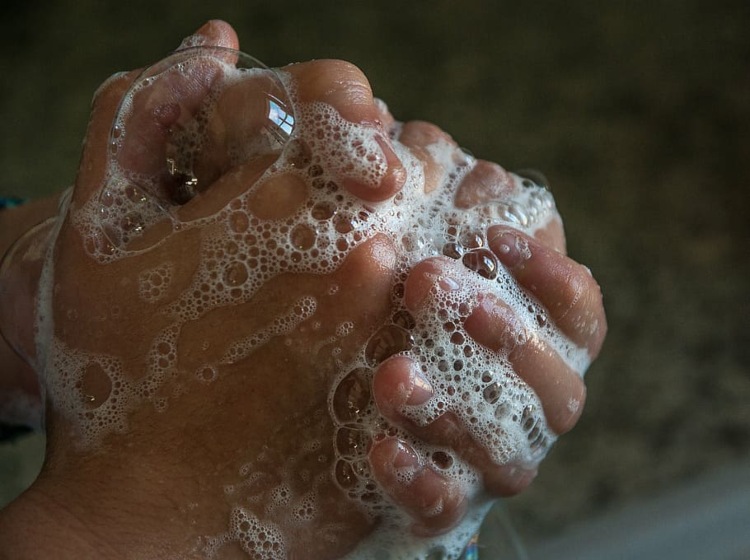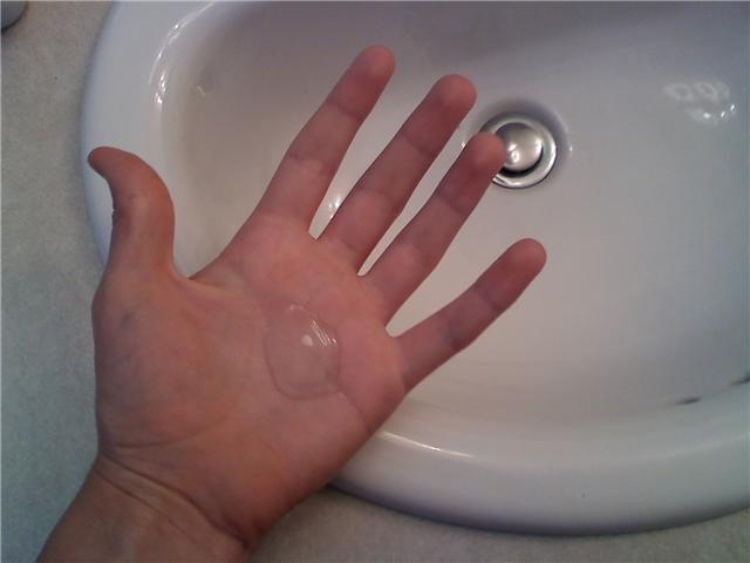Why Washing Your Hands Is An Effective Antiviral Measure
If you’ve opened a newspaper, turned on the TV, or if you’re just a human living in the year 2020, you’re probably aware that Covid-19 has pretty much taken over humanity.
A key factor in maintaining public health is the national effort being put toward flattening the curve, or slowing the spread of the virus, in order to ease the strain on medical facilities. This is why many businesses are allowing employees to work remotely. Additionally, federal, state, and local governments are insisting on strict social distancing protocols.
Social distancing allows hospitals and clinics to use their limited resources on those who need it the most and buys manufacturers time to produce and deliver essential items. The hope is that, through efforts to flatten the curve, confirmed cases will slow until we have more supplies and better treatments.
But, sometimes, social distancing alone may not be enough. There has to be something more you can do. What if that best form of protection was also one of the easiest things you could do? Read on to understand why one of the most effective ways to prevent the spread of Covid-19 is to simply wash your hands…

Surface To Nose: How A Virus Spreads
Most viruses—such as Covid-19, the flu, and the common cold—are primarily spread through droplets that are expelled when a sick person coughs or sneezes. Those droplets can fly several feet through the air, landing on other people or surfaces.
If you touch a table, shelf, or counter that someone just sneezed on, those droplets could stick to your hands. Once it’s on your hands, the virus can spread to your nose, eyes, and mouth, which is how you get infected. That should be an easy fix, right? All you need to do is stop touching your face.
Well, not so fast. Did you know that, on average, you touch your face up to 23 times per hour? In fact, face touching is mostly subconscious. You probably don’t even register when you do it. Because curbing subconscious actions is difficult at best, you’re going to need another strategy to prevent the spread of a virus.
Enter: handwashing.

Does Washing Your Hands Really Prevent The Spread Of Illness?
The short answer: yes.
In 2015, a study called PRIMIT found that regular handwashing can result in 10 – 15% fewer doctor visits in a year and make you 20% less likely to catch illnesses like the flu and the common cold.
The Center for Disease Control and Prevention (CDC) officially recommends handwashing as a way to prevent the spread of disease. They advise that you wash after:
- Using the bathroom
- Sneezing
- Coughing
- Blowing your nose
- Handling trash
The United States Navy even conducted their own studies and found that handwashing is an effective first line of defense in protecting yourself and others from illness or disease.

Why Does Handwashing Work, Exactly?
This might seem like a silly question; but, in the midst of a global pandemic, it’s important. Knowledge is power, right? The short version is that soap kills bacteria and viruses—including Covid-19.
There’s a catch, though: washing your hands only kills a virus if it’s exposed to soap for long enough. 20 seconds, to be exact. In other words, a quick splash and rinse won’t cut it.

How Does Soap Kill A Virus?
When you wash your hands, soap puts stress on the outer membrane of the virus droplet. Eventually, the soap literally rips the droplet apart, destroying it. Soap also sticks to the surface of dirt, germs, and viruses, lifting them off your skin and allowing them to be rinsed away.
If you’re thinking, “huh, I wonder if that’s why we use soap to wash dishes…” you’d be correct. It’s also why rinsing with water alone is not enough. Because the outer membrane of a virus is made up of a fatty substance, it can stick to your hands like glue.
Have you ever tried to rinse olive oil off your hands with just water? Did it work? Just like the fat in oil, you need soap to cut through the fatty membrane of a virus. To dig a little bit deeper into what makes soap so effective against viruses like Covid-19, check out this short video by Cheddar.

How Should I Be Washing My Hands?
Practically from birth you’re told that you need to wash your hands, but rarely are you told how other than “use soap, rub your hands together, and rinse.” Pretty vague, right? Don’t worry. Washing your hands properly is so easy.
Here’s all you need to do:
- First, rinse your hands with clean, running water
- Next, apply soap and lather it onto your hands and wrists, between your fingers, and under your nails
- Scrub your hands for at least 20 seconds total
- Once your 20 seconds is up, rinse the lather off with clean, running water
- Finally, dry your hands with a clean towel
For a more visual approach, check out this video created by the World Health Organization.
Making Handwashing A Habit
By now it might seem like a no-brainer: handwashing is clearly an effective antiviral measure. Unfortunately, for many people, it’s simply not a habit.
Common wisdom in the disease prevention field suggests that washing your hands at least 5 – 6 times per day is ideal. To build a solid handwashing habit, set a goal of at least 5 washes per day and start tracking it. Oh, and remember PRIMIT? You can now access their free online course full of easy and effective things you can do to limit the spread of viruses and other illnesses in your home.
A key part of managing the Coronavirus pandemic is preventing the spread of the virus as much as possible. Left unchecked, an aggressive virus like Covid-19 could easily overwhelm the medical system, leaving many untreated and even more vulnerable to infection. With a simple habit like handwashing, you can do your part to make sure that this virus doesn’t spread further than it has to.
